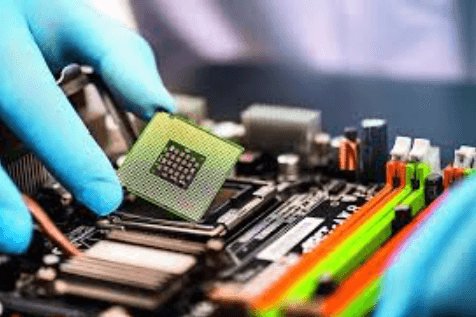Japanese Renesas Pcb Altium Altium Februarybrumptonbloomberg

The collaboration between Renesas, a prominent player in the Japanese semiconductor industry, and Altium illustrates a significant evolution in PCB design methodologies. By harnessing Altium’s sophisticated design tools, Renesas is not only enhancing operational efficiency but is also setting new benchmarks for quality in the automotive and consumer electronics sectors. As the industry shifts towards greater integration of AI and sustainable practices, the implications of this partnership could reshape future design paradigms. Exploring the nuances of this collaboration may reveal strategic insights that could influence upcoming trends in electronic product development.
Overview of Renesas Technology
Renesas Technology stands as a leading player in the semiconductor industry, renowned for its innovative solutions that cater to a diverse range of applications, from automotive to industrial and consumer electronics.
With a focus on Renesas innovations, the company continually develops cutting-edge technologies that enhance efficiency and performance.
Their commitment to excellence ensures that their semiconductor applications meet the evolving needs of a dynamic market.
Role of Altium in PCB Design
In the realm of PCB design, Altium has established itself as a powerful tool that enhances the efficiency and quality of the design process.
By offering advanced features for layout optimization, Altium significantly reduces design time and minimizes errors.
Its intuitive interface allows designers to focus on innovative solutions, fostering creativity while ensuring high design efficiency throughout the PCB development lifecycle.
See also: Interview Stanford Feifei Silicon Valley Financialtimes
Future Trends in PCB Development
As technology continues to evolve, the future of PCB development is poised to undergo significant transformations driven by advancements in materials, design methodologies, and manufacturing processes.
The integration of AI will enhance design efficiency and predictive analytics, while the shift towards sustainable materials will promote eco-friendliness.
These trends will empower innovators to create more efficient, reliable, and environmentally conscious electronic solutions.
Conclusion
The collaboration between Renesas and Altium exemplifies a transformative shift in PCB design, marrying innovation with efficiency. While traditional methods often lead to prolonged design cycles and heightened error rates, modern tools facilitate rapid development and precision. As the industry pivots towards AI integration and sustainable practices, the juxtaposition of cutting-edge technology and environmental responsibility emerges as a hallmark of future electronic product development. This partnership signifies a commitment to both excellence and sustainability in a rapidly evolving landscape.





